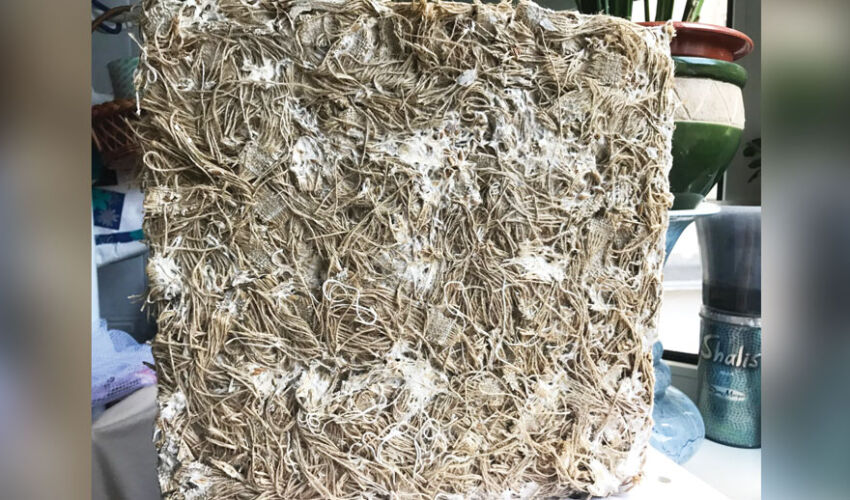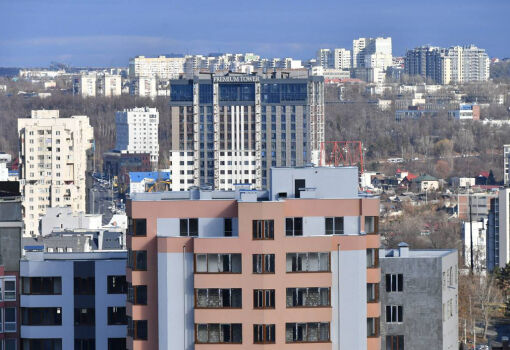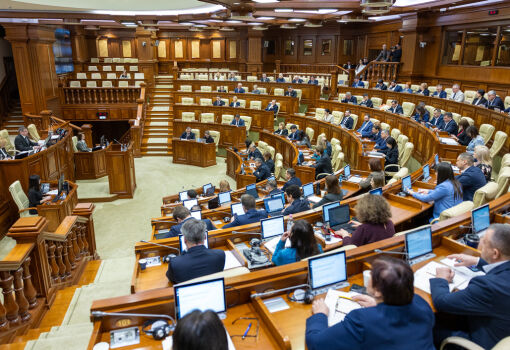
The head of the company, scientist and entrepreneur Nikolae Covalenco, claims to have developed a world-class technology.
“Now we have a big problem with insulation of buildings. We use materials made of synthetic plastic, stone, etc., which are not biodegradable. We thought we could get quality insulation from what we have in Moldova. We can use straw, branches, hay, tree leaves, office paper, jute, etc. that we can turn into thermal insulation. Even grass clippings can be used as raw material. So the potential is virtually limitless. We can produce them locally and insulate buildings, both residential and public. We can even use these materials for packaging,” explained Nikolae Covalenco.
According to him, two materials are currently used to insulate the walls of houses.
The first one, polystyrene, is completely synthetic. It is flammable, contains some chemicals that are released into the atmosphere when exposed to high temperatures. After getting to the landfill (the validity of thermal insulation of walls is no more than 15-20 years), the process of decomposition of polystyrene takes a very long time. Because of this, many environmentalists believe that the use of this material should be minimized. Although some types of polystyrene can be recycled, collecting the foam for recycling is costly and it breaks down very easily.
The production of one cubic meter of polystyrene requires 11 kWh of electricity.
The second material is mineral wool, a fibrous material produced by spinning or drawing molten minerals or rocks such as slag and ceramics. It requires even more energy to produce, with a natural utilization period of hundreds of years. Costs more than polystyrene.
Nicolae Covalenco used to work as a head of department at the Technical University of Moldova, then went into business. He started with cultivation of mushrooms-hanging mushrooms. And it was this experience that came in handy when he developed a new heat-insulating material.
“Mushrooms have mycelium – a vegetative body consisting of thin filaments called hyphae. They entangle and firmly bind the materials they come into contact with. However, simply growing mushrooms in blocks containing raw materials for insulation will not work – they pull out all the substances and turn the base into slag,” says the entrepreneur.
The technology developed by the Moldovan startup involves the use of mycelium as a binding material without growing mushrooms.
The resulting blocks (30x30x10 so far) were tested by the INCERCOM Institute in Chisinau. The analyses showed a thermal conductivity of 0.034 W per m2, which is even slightly lower than that of polystyrene.
At the same time, if office paper intended for recycling is used as a raw material, the insulation material is even stronger than that made of wood – like a brick. But it is biodegradable.
The size of the boards can be standard (100x500x10) or any other size – at the customer’s request.
The technology itself is simple enough to be applied even in villages, but Covalenco does not disclose it fully.
“At this stage, we plan to create joint productions,” he explains. – Our technology plus the investments of a future companion.”
The company’s production base is in Vadul-lui-Voda, and could serve as a model for replication throughout the country. For example, electricity and hot water are provided by solar panels (32 with a combined capacity of 10 kW) and a heat pump. The surface of the panels is specially treated to absorb heat from the environment, so they work even at night and in winter.
At the Moldova Eco Energetica 2024 Gala, CND SRL received a $10,000 grant from the GCIP Moldova program. This money will help the company expand production and bring innovations to the market, offering a sustainable alternative for the construction industry.
GCIP Moldova is a United Nations Industrial Development Organization (UNIDO) program funded by the Global Environment Facility (GEF) and implemented in Moldova by the National Center for Sustainable Energy (CNED). The program aims to promote and support innovative clean technologies, foster entrepreneurship and protect the environment.

